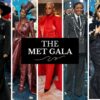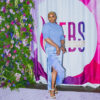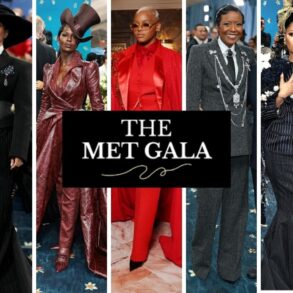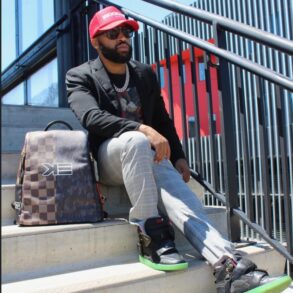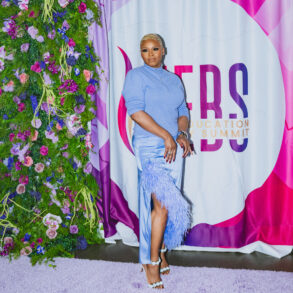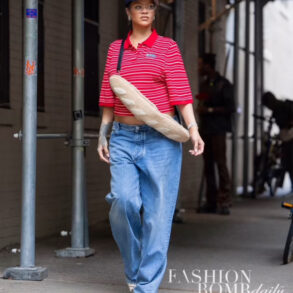
I hit my limit when I saw a Dodgers cap in a color called “Orange Popsicle.”
It looks more like a creamsicle bar, really. The cap is orange, with “Dodgers” across the front in white cursive, with a tan-colored bill and an under-the-bill color described on the marketing pitch as “camo” and described by me as “ice cream stains.”
Excuse me while I throw up.
The Dodgers cap is a classic: blue, with the interlocking “LA” letters in white, worn with pride by legends from Sandy Koufax to Clayton Kershaw, and by the 200 million fans who have assembled at the ballpark over 65 years of home games in Los Angeles.
Dignity, alas, has gone the way of outfield walls without ads and pitchers taking their turn at bat.
Today, you can buy a Dodgers cap in colors better discovered deep within a jumbo box of crayons: neon green and cement gray; pale yellow and stone orange; pecan and neapolitan; toffee and tiramisu; walnut sky and desert mist.




The “Faded 59Fifty” was the most popular Dodgers fashion hat in 2020.
(Courtesy of New Era and Lids)
You can buy a Dodgers cap decorated with a butterfly or a shark, with flowers or hearts, with waves or cheetah spots, with an avocado or a zodiac sign.
“I have softened,” Dodgers manager Dave Roberts said, “on the idea of different styles of Dodger hats. I think it’s a sign of the times.”
Indeed, caps that might otherwise be dismissed as novelties are attracting attention from fans and nonfans alike. The caps players wear on the field remain the foundation of baseball cap sales, but the so-called fashion caps make up an ever-larger and faster-growing segment of sales.
“That’s what’s been driving the business,” said Bob Durda, president of the cap retailer Lids.
Ground zero for the cap revolution: the 1996 World Series, according to Todd Radom, author of “Winning Ugly: A Visual History of Baseball’s Most Unique Uniforms.”
Director Spike Lee, a New York Yankees fan, wanted to wear a red Yankees cap to the World Series, to go with his red coat. He got one, specially made for him. During the same series — for the first time, Radom said — Major League Baseball affixed commemorative World Series patches to the on-field caps.
The traditional uniform was no longer considered sacred, not in a decade when expansion teams debuted purple and teal as primary colors, and when existing teams popularized alternate uniforms and experimented with gaudy “Turn Ahead the Clock” jerseys.
“Part of this has to do with the tremendously diminished revenue coming off the strike in ‘94,” Radom said. “They were looking to monetize things in new and inventive ways. It was revenue-driven, and it starts then.”
As the 20th century gave way to the 21st, the league expanded its apparel partnerships beyond conventional sporting goods companies to hip-hop designers and fashion outfitters.
“There are a lot of things I’m good at, but one is probably not designing fashion,” said Noah Garden, Major League Baseball‘s chief revenue officer. “We rely on our partners. They know what sells. They know what our fans are looking for.”
Dozens upon dozens of Dodgers caps are on display at the Lids store at Hollywood and Highland. The employee helping me wears a Dodgers cap — a khaki cap, with gold accents and a black bill.
“Matches some of my shoes,” the employee said.
The “Color UV 59Fifty” was the most popular Dodgers fashion cap in 2021.
(Courtesy of New Era and Lids)
Said Garden: “We are servicing our fans in as many ways as we can. When they want to show they are a fan of that club, they wear the iconic cap. When it’s about what I’m wearing tonight to go out to dinner, then it becomes about fashion.”
For everything, there is a season. For baseball caps, that season need not be baseball season.
“During the spring and summer, a lot of customers are looking for the brighter colors, the pastels and the brights,” Durda said. “When you get to the fall, it’s more the earth tones.”
Baseball caps have exploded beyond the ballpark and into popular culture. In 2022, according to Cognitive Market Research, 435 million baseball caps were sold in the United States — or roughly 9 caps sold for every 1 ticket sold to an MLB game.
Sales of officially licensed MLB caps have increased “over 200%” since 2020, league spokesman David Hochman said. MLB declined to provide specific figures. But Radom, who has worked with Lids, said this of the company: “Their fulfillment warehouse is like 10 Ikeas put together.”
In 2020, according to Lids, 1 of every 10 fitted Dodgers caps sold was a fashion cap. In 2021, 3 of every 10 was a fashion cap.
This year, for the first time, Lids is selling more Dodgers fashion caps than on-field caps. It’s still early, as they say in baseball, but Lids’ mid-year trends indicated 7 of every 10 Dodgers caps sold so far this year were fashion caps. (The trend is similar for California’s four other major league teams, Lids said.)
The most popular Dodgers fashion cap in 2022, according to Lids, is called “Rustbelt” and features three colors: black, camel, and orange.
This “Rustbelt” design was the most popular Dodgers fashion hat in 2022.
(Courtesy of New Era and Lids)
“I think the staple of the Dodger blue with the white embroidered ‘LA’ is a staple in perpetuity,” Roberts said. “I like the tradition of it. To see the traditional hats around Dodger Stadium, around the city, is fun for me. It’s easy to identify with.
“But it’s fun to see Dodger fans put their own individual spin on their support for the team. Everyone is kind of marketing and branding the ‘LA’ in different ways.”
Kershaw pointed to the cap hanging in his locker, and to the interlocking white letters.
“This symbol right here is iconic, the ‘LA,’” Kershaw said. “It’s like a style. It’s like a fashion thing too, all the different colors and different things.
“It’s still the ‘LA.’ I think that’s what makes it significant. At the end of the day, you can change all you want, but I don’t think they’re going to change that.”
At the end of my day, after getting a look at Dodgers caps in yellow and in brown, and in red and in purple, and in white-on-white and black-on-black varieties, the Lids store employee suggested I head one floor up in the Hollywood and Highland center, where a Dodgers Clubhouse store displayed even more styles of Dodgers caps.
Friends, you can buy a tie-dye Dodgers cap there. It’s time for Dodger baseball!
This post was originally published on this site be sure to check out more of their content.

